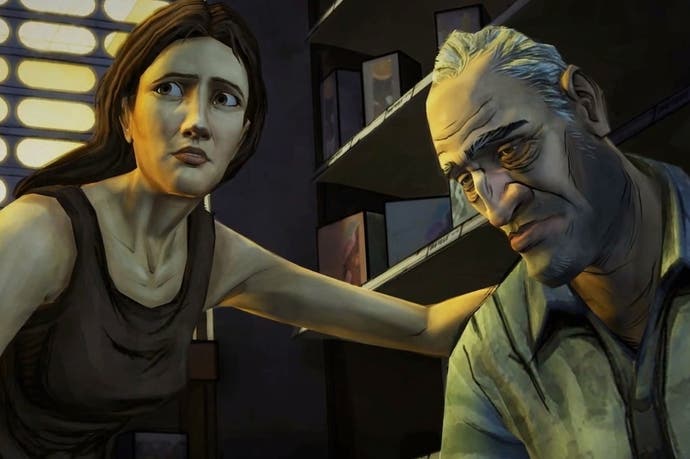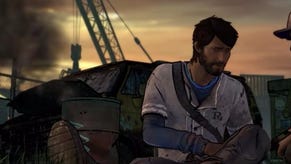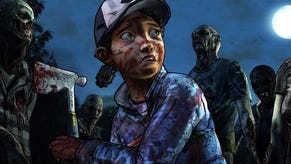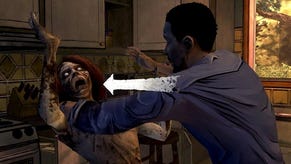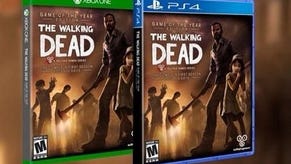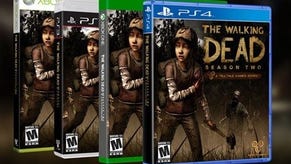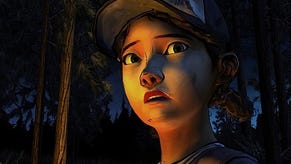Hard Choices
It's not the size, it's how you use it.
SPOILER WARNING: Be warned - this week's soapbox contains spoilers for the ending of Walking Dead, so please don't read on unless you've played through Telltale's game in its entirety, or unless you really, really want the whole thing RUINED for yourself.
I don't want to change the world, I just want it to notice me. Not my avatar, or whatever protagonist whatever developer has thrust into my hands and pointed at the nearest corridor. You can create the illusion of impact around a static character that you have complete control over. I want my autonomy to be recognised, and I want to be able to make a choice.
Games are interaction, and for far too long narrative has wrestled and struggled with that aspect of them, preferring to retreat to the safety of linear confines so that they can control the flow of the story. Status quo, disturbance, journey, conclusion, the Platonic ideals that can be tightly scripted to the action. They dictate what's going to happen, where you are, and limit your avenue of choice to which head to shoot first, or what piece of cover you're going to reload behind next.
But the more that the biggest games are starting to offer you narrative choice, the louder the uproar of demand that such choices have to matter, that if I don't see a clear and tangible, not to mention nigh on immediate, consequence to my actions, then I might as well not put the disc in the machine.
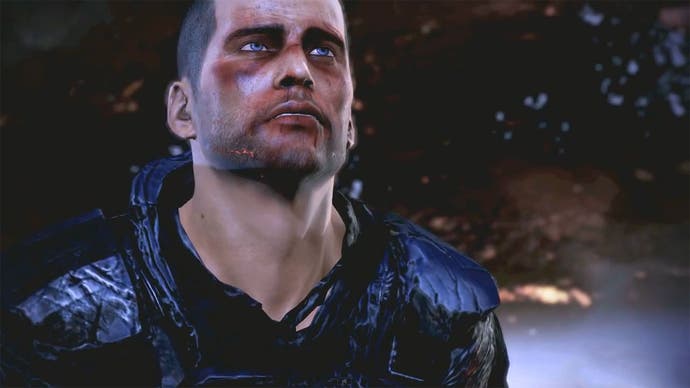
Choice without meaning is no choice at all, in other words. Except the problem is that we're looking for meaning in all the wrong places. The furore about the Mass Effect ending not changing enough depending on previous choices, or, more recently, the finale of The Walking Dead not being different for each and every one of us, as if some genius algorithm could parse exactly how extreme the butterfly effect would manifest and then conjure it up.
In an industry in love with the power fantasy, that still feels a little arrogant. Rather than be led down a narrative where you save the world, you want the power to shape it? More than that, you want it to be just as well told, and just as rich in story and plot as if it was linear and directed. Regardless of whether or not it's possible for one team of game-makers to ever approach anything that vast, it's just not realistic.
Because, as much as it is nice to think that everyone has the power to change the world, very few people have ever managed it. Fewer still will change it in any meaningful way, and so we shouldn't be looking to emulate their triumphs in every single instance. We're looking to change our endings, when we're ignoring how much we can change how we get there.
The Walking Dead isn't a game about how your choices can change what happens to you. In the inexorable pull of the post-apocalypse, you're just along for the ride, and what happens happens. Instead, it's a game about how your actions can change the characters around you, and how they think of you. That's where the meaning is, and that's what it manages to achieve with an almost sublime grace.
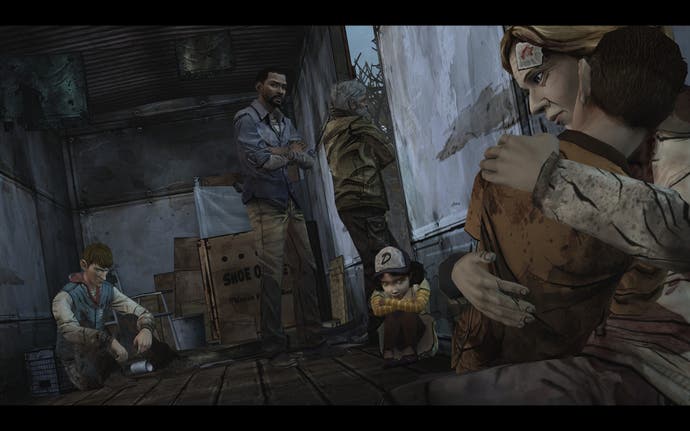
By the time you get to episode five, your group is in tatters; there is no clearer evidence of this than in the fact that you could be alone, left to fend for yourself going into the climax of Telltale's story. What has led you to this moment is not your choices, but just because that's where the story went. What is up to you is what happened on the way, and who's with you.
You're entirely responsible for their presence; the decisions you've made, who you've pissed off and who you've kept close. It's not going to change where you go, but it is going to change how people perceive you, and being left all alone, or without certain people, is only ever going to be a reminder of how you failed to make it out of certain situations unscathed. You had choices, and they changed things. They changed them right then and there, and it doesn't matter whether they change the face of the world or just the face of your world; they've still got impact.
That's the strength of The Walking Dead, and to a lesser extent something like Mass Effect. Even The Witcher 2, a game which had one of the most drastic consequences to a choice yet seen in a game, where the entire second chapter is vastly different depending which way you go, ends up forced to bring you to the same destination once you've played out that section. But your experience has changed, you've got a different story to tell around the water cooler.
The desire for a diverse ending is to see how things are going to play out once the final curtain falls. It's understandable, but no montage is ever going to be satisfying, no matter how well directed. It's one of those things you think you want, but you really don't, because your imagination is always going to do a better job. A little ambiguity is a good thing when it comes to a conclusion.
By the time you reach the end of the Walking Dead, Lee is going to die. There's no avoiding it, and it forms the crux of one of the most powerful scenes in gaming. Clementine is faced with the horror of having to kill her surrogate father, or abandon him to turn into one of the monsters they've spent so long fleeing from. Both eventualities are horrifying, but inevitable.
It's here that Telltale did a beautiful thing; rather than try and offer you some sort of branching choice that you could label as 'good' 'bad' or 'weird', they give you a simple set of dialogue options. Some parting advice for the character you've spent so long looking after. It's meaningless in terms of the story; what's going to happen is always going to happen. You can't stop fate. But it means the world to Clem, and no matter what you say you know she's going to take that advice to her grave.
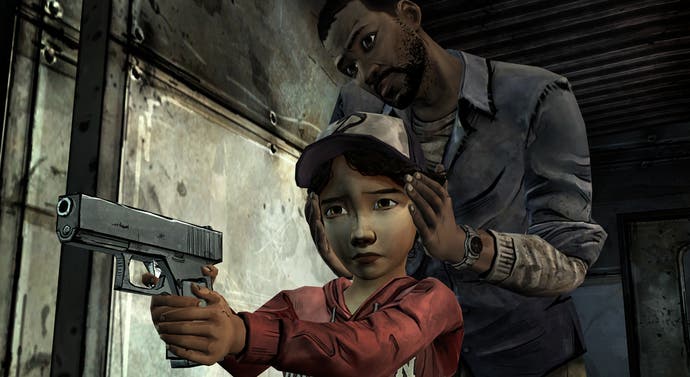
You don't save anyone, and you can't even save yourself, but when she pulls that trigger, and the screen instantly cuts to black, you know that you did your best, and she'll live and die by your actions, going forward. You're invested, and that means that your actions have consequences, even if Telltale doesn't have the workforce to bring each and every one of them to life.
Games don't need to try and present some arbitrary choice at the finale just to adhere to the petulant demands of an audience that's under the illusion of impotence in the face of a narrative conclusion. That's just flailing in the dark, an attempt to staple meaning onto an ending that would've been just fine without it. Deus Ex, Mass Effect, inFamous, Fable; all of them fall into the trap of loading all their meaning after it would have mattered.
The Walking Dead has managed to steep itself in hundreds of smaller choices, each one resonating far more than any three-way moral pick-n-mix on how to use a game's McGuffin. The greatest failing of the game is when it does try and preach, attempting to face you with some arbitrary consequence to your accumulated choices. It doesn't quite fall flat, but it does feel clumsy.
Instead the choices you make always hit hardest when they change someone's character, and alter the experience you're having right now, rather than some post-credits montage sequence. We don't need to see the world hewn in two by our actions, but we can change the people around us, and that's just fine.
